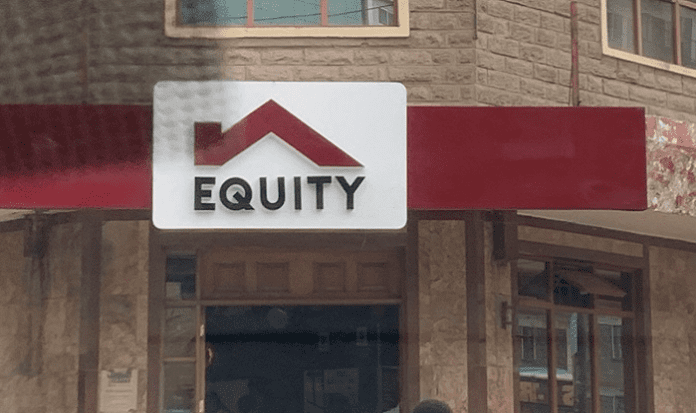A legal battle has ensued after Equity Bank flagged questionable fund transfers amounting to Sh386.5 million, which it attributed to fraudulent activities involving a former employee.
According to court documents, the ex-employee allegedly orchestrated the unauthorized transactions between May and June 2024, channeling the funds to eight different companies.
The firms named in the case include Ubahashi Traders Limited, Calabash Adventures Limited, Jahnur Investment, Kariye Investment, Flowerish International, Kariye Salah Ali, Hotho Investments, and Sasa Pay Trust.
Following the discovery of the transactions, Equity Bank reported the matter to the Banking Fraud Investigation Unit under the Directorate of Criminal Investigations (DCI). It then moved to court, requesting an order to freeze the funds while investigations were underway.
In its application, the bank detailed the amounts held in the firms’ accounts, with Ubahashi Traders Limited receiving the highest sum of Sh207.7 million. Other allocations included Sh85.7 million for Kariye Investment, Sh93.04 million for Hotho Investments, and Sh18.5 million for Jahnur Investments. Sasa Pay Trust had initially requested a lien on Sh26.5 million, but records later indicated an inflow of Sh88 million.
The accused firms opposed the bank’s move, maintaining that their dealings were legitimate. Through affidavits filed by Mohammed Hashi Adan, Kariye Salah Ali, Mohamud Mohamed Arab, Abdirashid Mohammed Hassan, and Mohammed Sahil, the companies insisted that they primarily engaged in import businesses and often collaborated to source US dollars.
They explained that they had been approached by Geoffrey Kiragu, who introduced himself as a property agent with substantial amounts of money requiring conversion to US dollars. The firms claimed they agreed to receive the money, convert it, and remit it back to him in exchange for a commission.
However, they later discovered that the funds originated from fraudulent activity within Equity Bank. The companies asserted that they had no knowledge of the money’s illegitimate source and argued that they were being unfairly targeted.
Furthermore, they stated that the funds had passed through several entities before reaching their accounts, distancing themselves from direct involvement in the scheme. The firms also claimed they had cooperated with authorities, even assisting in the arrest of Geoffrey, and requested the court to lift the freezing orders to allow their businesses to continue operating.
Equity Bank, however, remained firm on maintaining the freeze, arguing that despite knowing the money’s fraudulent origins, the firms had refused to return the funds. The bank also noted that the companies were not authorized to conduct foreign exchange transactions, as per regulations set by the Central Bank of Kenya. It warned that without the court’s intervention, the money could be lost.
In his ruling, High Court Judge Alfred Mabeya upheld the bank’s application, citing the doctrine of tracing, which allows unlawfully acquired funds to be tracked even if they have passed through multiple accounts.
“In the present case, at a prima facie level, the record demonstrates that the plaintiff’s funds were successfully traced to the defendants’ accounts. This, combined with the defendant’s admission of receiving the money, establishes an arguable case,” Justice Mabeya stated.
He further expressed concerns about the possibility of the funds being withdrawn or depleted if the freeze was lifted.
“Regarding the risk of dissipation of funds, there is no assurance that the defendants will refrain from withdrawing or depleting the funds once the freezing orders are lifted. Money is a fluid commodity that can disappear by the stroke of a pen. The court finds that the plaintiff faces a significant risk of losing the money if the orders sought are not granted,” he ruled.
With the court’s decision favoring Equity Bank, the affected firms now face financial uncertainty as investigations continue.







